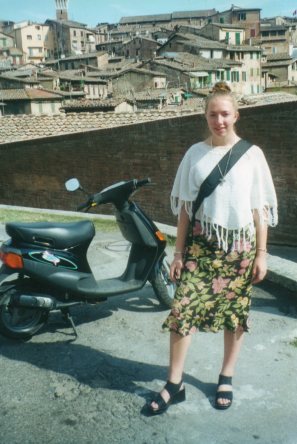Last week, Caitlin Kelly at Broadside wrote about life-changing moments: the events that divide “the moments before and the moments afterward into two very different lives.” Check it out–it’s a beautiful read.
She goes on to discuss some of her moments, and the ways in which they changed her. It set me thinking about my own experiences, and inspired me to revisit some thoughts that have been sitting in my draft pile for a long time now.
Kelly talks about life-changing moments. I had them down as defining moments: the moments that become a part of our story forever; and for me, the moments I will always write about.
We all have those moments in life: the ones we’ll never forget, the ones that may have contributed to various versions of our ideal self. They may have been great triumphs–moments of pride that still make the chest swell when we think of them–or just small instances of hard work or talent recognized and praised (from without or within.) Sometimes they are a book we read that changes us, a piece of information we learn that moves us, or a person we meet that inspires us. Sometimes they are a shock that we immediately know will alter our life forever. These moments become little dog-ears in our story.

Photo (used with permission) by Barbara Dickie
I can list of my defining moments so easily:
1. The first time I learned about the genocide in Rawanda. After I read up on it in preparation for a Model UN conference, a few years after it had happened, I couldn’t believe that as a highschool-aged person, I didn’t know much about it. I felt stupid, ashamed. Mostly I felt mad, because I knew that even being a self-centered highschooler, it wasn’t entirely my fault for not being aware of the murder of nearly 1 million people. If I hadn’t heard much about it, it’s because that story wasn’t being told. That was a moment when I decided that I could be a voice to tell these untold stories. It also motivated me to study international politics and development.
2. My first trip abroad, to Italy for Catholic World Youth Day in 2000. While I laughed and sputtered and sang my way through Italy with tourist-level Italian, I felt right at home away from home. It wasn’t just “catching the travel bug,” but more like recognizing that there were pieces of my heart scattered all over the world, and I would spend the rest of my life finding them.
3. The unexpected and traumatic death of my sister. Of course, defining moments can be negative, too. Some self-help advice advises that we shouldn’t let these negative experiences define us. But I believe that’s unrealistic, even dangerous advice. I will forever be defined by my sister’s death. That’s an undeniable part of me now (and if I try to deny it, that will cause other problems).
The issue is not whether we allow these moments to define us, but how. These moments always offer us a choice. We can either be forever defined by how sadness and loss defeated us, or we can be defined by how we defeat them. That process of overcoming is a constant one.
***
These moments become touchstones for us–reminders of our truth during times when the details of everyday life obscure our vision into our innermost selves. Keeping a hold of that self will lead us along to more of what we are meant to become. (For example, it surprised nobody that I would find a big piece of my heart, my husband, while travelling in Thailand 3 years after that Italy trip; then another piece, my daughter, here in Toronto nearly 10 years later.)
This is why I know I will write about these events again and again. Writing is part of my definition. And defining ourselves is a constant process.
What are your defining moments–if you’re a writer, the moments you will keep writing about? Leave a comment here, or join the discussion at Broadside.


